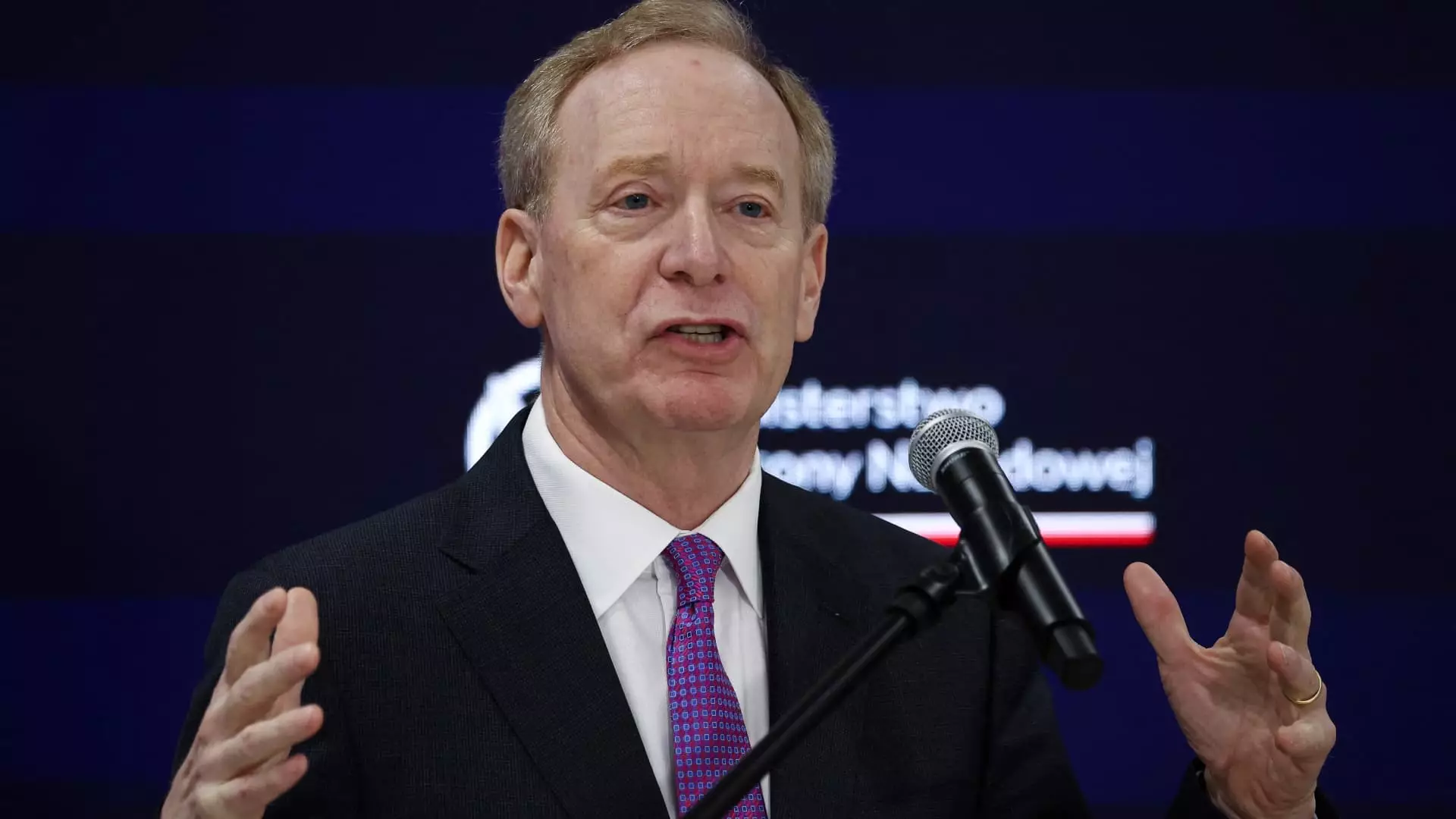In an era marked by rapid technological advancement and stringent regulations, Microsoft is positioning itself as a respectful global citizen, particularly in the context of European legislation. President Brad Smith articulates a clear commitment to adhere to European laws, even while acknowledging the differences in opinion between the tech giant and policy-makers. His statement serves as a dual reminder: not only is Microsoft willing to comply with local regulations, but it also seeks to foster positive relations amid a backdrop of geopolitical tensions. This is critical, especially as the European Union continues to take significant strides toward regulating the power of major tech companies.
The Stakes of Compliance
The European landscape is littered with stringent regulations like the Digital Markets Act (DMA), which aims to rein in the dominance of “gatekeeper” firms such as Microsoft, Google, and Apple. Compliance with these laws is not merely a legal obligation; it’s a strategic necessity. Non-compliance can result in hefty fines, as highlighted by recent developments where fines were levied against Apple and Meta for breaches related to the DMA. Such actions symbolize the EU’s steadfast resolve to maintain competitive fairness in the market. Therefore, by emphasizing compliance, Microsoft not only protects its financial interests but also attempts to bolster its image as a cooperative entity rather than an adversarial giant.
Charm Offensive or Genuine Outreach?
Smith’s comments seem to form part of what appears to be a charm offensive aimed at diffusing rising tensions between the U.S. and the EU, exacerbated by tariffs linked to trade disputes initiated under the Trump administration. However, one can’t help but question the authenticity of this outreach. Is Microsoft’s commitment grounded in a genuine desire to comply with European norms, or is it merely a calculated move to mitigate potential regulatory backlash? In a world where the implications of international tariffs can reshape business strategies overnight, companies like Microsoft must carefully navigate the waters of international diplomacy while also advocating for their interests.
The Trade War’s Shadow
The ongoing trade war initiated by the Trump administration has led to increasing scrutiny of American tech companies in Europe. The EU, wary of becoming a battleground for U.S. political conflicts, has tightened its regulatory grip. Analysts have voiced concerns that the actions against major tech firms could escalate, using regulatory measures as a tool to retaliate against U.S. tariffs. Such a scenario complicates the landscape for Microsoft, which finds itself straddling the line between compliance and competition. As such, the company must not only ensure adherence to existing laws but also predict and adapt to future regulatory developments.
Building Digital Infrastructure with Integrity
Smith emphasizes Microsoft’s dedication to building digital infrastructure in Europe while complying with its laws, signalling a broader vision that aligns technological growth with legal responsibility. This approach extends beyond mere compliance; it speaks to a growing understanding that sustainable business practices are increasingly intertwined with ethical considerations. In this light, Microsoft’s commitment to European laws is not just about avoiding fines, but rather about cultivating a corporate culture that respects the legislative frameworks within which it operates.
The Broader Implications for Big Tech
Microsoft’s willingness to publicly acknowledge and respect European laws may serve as a blueprint for other tech giants navigating the complexities of international regulations. The necessity for compliance may prompt companies to reassess their operational strategies, ensuring that they proactively meet global standards rather than reactively adjust post-violation. As Big Tech faces mounting pressure from regulatory bodies worldwide, the commitment to uphold local laws becomes crucial in shaping the future of global tech business ethics.
By aligning itself with European regulations, Microsoft not only protects its interests but also sets a standard for responsible corporate behavior, potentially paving the way for improved relations between the tech industry and regulatory bodies. As these dynamics continue to evolve, the tech community must remain alert, flexible, and committed to fostering an environment of cooperation and respect amidst the winds of geopolitical change.


Leave a Reply